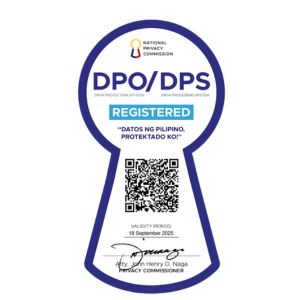Burnout is characterized by emotional exhaustion, detachment, and a reduced sense of personal accomplishment. Although it is not considered a mental illness, work burnout is still a mental health issue because of its growing impact on employees. Work burnout can affect both the health and job performance of employees at any level of an organization.
There are many factors that contribute to burnout. However, burnout is more likely to happen when employees:
- Have high expectations of themselves.
- Feel incompetent or have feelings of inadequacy.
- Feel unappreciated.
- Feel that the demands at work are unreasonable.
- Feel that they are not fit for the job.
Most of the time, employees may not realize that they are experiencing burnout. Every day, employees encounter all kinds of stress. It may be difficult to distinguish regular stress from burnout. However, burnout, unlike stress, includes feelings of helplessness, hopelessness, or apathy. It can also lead to negative impacts on their performance, such as an increase in errors or a decrease in productivity. If left unaddressed, burnout may also lead to other illnesses, such as clinical depression. Here are some signs and symptoms to look out for:
- Less efficiency and energy
- Less motivation
- Increased errors
- Fatigue
- Headaches
- Irritability
- Increased frustration
- Suspiciousness
- Self-doubt
- Sarcasm and negativity
- Substance abuse
- Poor physical health
- Clinical depression
- Reduced job satisfaction
- Increased absenteeism
Burnout negatively impacts the quality of a person’s life and can be distressing. It has been linked to various stress-related physical and mental health problems. It also impacts the quality of work of a person and the services that they provide. It is important to recognize these signs and symptoms so that they can be addressed and help employees recover from burnout. According to research, there are four strategies of self-care that can help prevent burnout:
- Maintain a sense of control. Having a sense of control of the situation can help a person deal with stress better. Oftentimes, burnout is also caused by working long hours or having too much workload. To get a sense of control over a seemingly overwhelming situation or task, it helps to break it down into smaller achievable parts. Focusing on one thing at a time is helpful in keeping us from being too overwhelmed or stressed out about all the things that have to be done. Breaking the tasks or projects into smaller parts also makes it easier to achieve and gives us a sense of accomplishment.
- Reflect on satisfying experiences at work. Focusing on good work experiences helps us maintain a positive attitude about work. Remembering what we like about work or why we enjoy it helps us balance our perspective and lifts our mood. This motivates and energizes us, which reduces the risk of
- Maintain a balance between personal and professional lives. Maintaining work-life balance is important as well. Minimizing the demands of work and family or personal life helps reduce the stresses that we encounter. It also helps us gather resources outside of work, such as support from friends and family, and hobbies or interests. Having these resources may help reduce the risk for burnout as well.
- Maintain self-awareness or self-monitoring. Mindfulness is also very helpful in taking care of our mental health. It is important to be aware of our current state and well-being. Constantly monitoring and being aware of our health makes it easier to know if there is something wrong. When we are aware of how we feel, both mind and body, it will be easier to know what we need to do to make ourselves feel better and healthier.
PowerVision can help employers and companies provide the support employees need to prevent work burnout. We provide Employee Assistance Programs (EAP) or workplace counseling services to help employees deal with personal and work-related issues that may impact their job performance. Our employee assistance programs include face to face counseling sessions and 24/7 phone counseling services. We also provide educational talks and workshops that can help educate employees on how to care for their mental health and prevent work burnout. Contact us for more information!
References:
Rupert, P.A., Miller, A.O., & Dorociak, K.R. (2015). “Preventing Burnout: What Does the Research Tell Us?” Professional Psychology: Research and Practice, 46(3), 168-174. http://dx.doi.org/10.1037/a0039297.
Workplace Strategies for Mental Health. (n.d.) “Burnout Response.” Retrieved from https://www.workplacestrategiesformentalhealth.com/managing-workplace-issues/burnout-response











